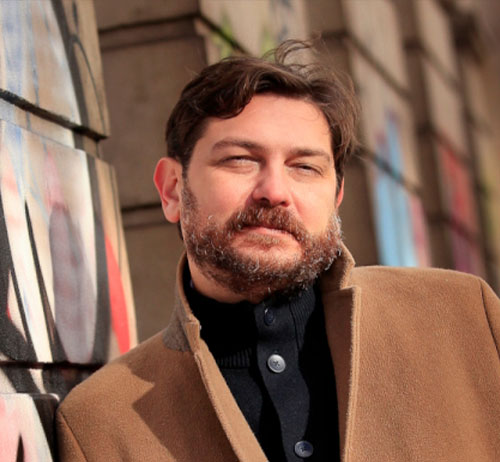Neuralink and the future of thought control: is Elon Musk’s brain tech a step too far?

Aleksey Savchenko
- Published
- Opinion & Analysis

As brain–computer interfaces edge closer to commercial reality, veteran game developer Aleksey Savchenko explores the implications of Elon Musk’s Neuralink and asks whether a future of cognitive convenience might come at the cost of freedom, privacy, and control
There are many questions surrounding the role of technology in our lives today. But one in particular is beginning to dominate: how much are we really willing to give up in exchange for the convenience and efficiency that technology promises?
We’ve already shown we’re willing to trade our time and money – the last two decades have made that abundantly clear. But are we now ready to go deeper down the rabbit hole? To give up freedom, independent thought, even dignity, just to keep following this path?
That may sound extreme. But hear me out.
The internet is one of the most powerful innovations of the modern world. It began with good intentions, thanks to pioneers like Sir Tim Berners-Lee and other figures around the globe who built a decentralised, open network of networks. They understood its potential for good…and for harm. That’s why, even with flaws and regional variations, it remains a system underpinned by legal frameworks, checks and balances, and some degree of democratic accountability.
But many of the most powerful technologies we’ve seen in the past 20 years don’t follow that model at all. They’re created and owned by private corporations, not public institutions. Their architects are not elected, not accountable, and often not bound by any ethical obligation to the common good. They pursue capital, not consensus. And in the absence of strong regulatory oversight, the public interest becomes an afterthought – if it’s considered at all.
In theory, a healthy balance is reached through dialogue between tech companies and government. In practice, that model is crumbling. Many governments are slow, bureaucratic, and disconnected from both innovation and public sentiment. But is that a reason to swing entirely the other way – to abandon years of legal safeguards, civic protections and democratic systems in favour of tech billionaires who like to “move fast and break things”?
Let’s not kid ourselves: if a company like Neuralink – owned by Elon Musk – succeeds in implanting devices into human brains, we’re talking about the most intimate form of data extraction and manipulation in history. What happens if you can’t afford the upgrade? What if there’s a subscription fee? What if “free” means you agree to watch ads, or vote as you’re told, or become a node in someone else’s attention economy?
If power is concentrated in the hands of companies who view regulation as an obstacle, and public interest as a joke, what stands between that power and your mind? Very little. In a world where business and politics are increasingly entwined, personal freedom becomes disturbingly fragile.
Regulation must change, but not to get out of the way. Rather, it must evolve to lead. And that leadership needs to come from people who understand the digital economy deeply, but who have chosen to prioritise human welfare over profit. These individuals do exist – technologists, lawyers, academics, civil servants – and they must be empowered.
Regulation should not be a blunt instrument. It can be a guiding force, shaping innovation to benefit society, not just shareholders. Equal access to markets, support for independent developers, public research funding, and strong competition frameworks all help level the playing field. Sovereignty matters too. Governments must ensure that their digital infrastructure isn’t vulnerable to foreign monopolies or internal manipulation. That’s not protectionism but responsible stewardship.
So before we leap into the next wave of tech utopianism – before we install a chip in our heads in the name of productivity – we should ask a deeper question: do we want to live in a world where our right to exist depends on our ability to compete endlessly, perform constantly, and monetise our very thoughts?
I don’t. I don’t want to return to an era where survival means 12-hour shifts in a steel mill – only now the oven is a glowing screen, and the shift never ends. Where neuro-implants, biometric tracking, and algorithmic control masquerade as “personal optimisation” while funnelling profit to a man on the other side of the planet who thinks empathy is a bug in the system.
I want to live – and work, and create – in a society where I make my own decisions. Where I can build something, collaborate with others, or work for someone I trust. Where elected representatives are empowered to defend that vision – and if they need help, they ask. And when they do, they’ll find no shortage of people ready to support them.
Because the future doesn’t have to be dystopian. But if we don’t fight for balance, dignity and accountability in tech, then dystopia is exactly what we’ll get.
You can read Aleksey Savchenko’s previous article for The European, The Future of IP Is Independent — and Europe Knows How to Build It, where he explains how a new generation of creators is reclaiming control of their ideas — and why Europe’s collaborative creative culture is poised to lead the IP revolution.
He also explored the state of British game development in Another British Video Game Industry Hit by Brain Drain, warning that risk-averse leadership and short-term thinking are pushing top-tier talent out of the sector and into defence, simulation and advanced tech.

Aleksey Savchenko is a veteran game developer, futurist, author, and BAFTA member with nearly three decades’ expertise in the tech and entertainment industries. Currently the Director of RnD, Technology and External Resources at GSC Game World, he has worked on the studio’s acclaimed S.T.A.L.K.E.R. 2. He has also worked for Epic Games, known for Fortnite and its technical achievements in middleware technologies worldwide, playing an instrumental role in establishing an Unreal Engine with Eastern European developers. He is the author of Game as Business and the Cyberside series of cyberpunk graphic novels.
Main image: ThisIsEngineering/Pexels
RECENT ARTICLES
-
 The era of easy markets is ending — here are the risks investors can no longer ignore
The era of easy markets is ending — here are the risks investors can no longer ignore -
 Is testosterone the new performance hack for executives?
Is testosterone the new performance hack for executives? -
 Can we regulate reality? AI, sovereignty and the battle over what counts as real
Can we regulate reality? AI, sovereignty and the battle over what counts as real -
 NATO gears up for conflict as transatlantic strains grow
NATO gears up for conflict as transatlantic strains grow -
 Facial recognition is leaving the US border — and we should be concerned
Facial recognition is leaving the US border — and we should be concerned -
 Wheelchair design is stuck in the past — and disabled people are paying the price
Wheelchair design is stuck in the past — and disabled people are paying the price -
 Why Europe still needs America
Why Europe still needs America -
 Why Europe’s finance apps must start borrowing from each other’s playbooks
Why Europe’s finance apps must start borrowing from each other’s playbooks -
 Why universities must set clear rules for AI use before trust in academia erodes
Why universities must set clear rules for AI use before trust in academia erodes -
 The lucky leader: six lessons on why fortune favours some and fails others
The lucky leader: six lessons on why fortune favours some and fails others -
 Reckon AI has cracked thinking? Think again
Reckon AI has cracked thinking? Think again -
 The new 10 year National Cancer Plan: fewer measures, more heart?
The new 10 year National Cancer Plan: fewer measures, more heart? -
 The Reese Witherspoon effect: how celebrity book clubs are rewriting the rules of publishing
The Reese Witherspoon effect: how celebrity book clubs are rewriting the rules of publishing -
 The legality of tax planning in an age of moral outrage
The legality of tax planning in an age of moral outrage -
 The limits of good intentions in public policy
The limits of good intentions in public policy -
 Are favouritism and fear holding back Germany’s rearmament?
Are favouritism and fear holding back Germany’s rearmament? -
 What bestseller lists really tell us — and why they shouldn’t be the only measure of a book’s worth
What bestseller lists really tell us — and why they shouldn’t be the only measure of a book’s worth -
 Why mere survival is no longer enough for children with brain tumours
Why mere survival is no longer enough for children with brain tumours -
 What Germany’s Energiewende teaches Europe about power, risk and reality
What Germany’s Energiewende teaches Europe about power, risk and reality -
 What the Monroe Doctrine actually said — and why Trump is invoking it now
What the Monroe Doctrine actually said — and why Trump is invoking it now -
 Love with responsibility: rethinking supply chains this Valentine’s Day
Love with responsibility: rethinking supply chains this Valentine’s Day -
 Why the India–EU trade deal matters far beyond diplomacy
Why the India–EU trade deal matters far beyond diplomacy -
 Why the countryside is far safer than we think - and why apex predators belong in it
Why the countryside is far safer than we think - and why apex predators belong in it -
 What if he falls?
What if he falls? -
 Trump reminds Davos that talk still runs the world
Trump reminds Davos that talk still runs the world


























